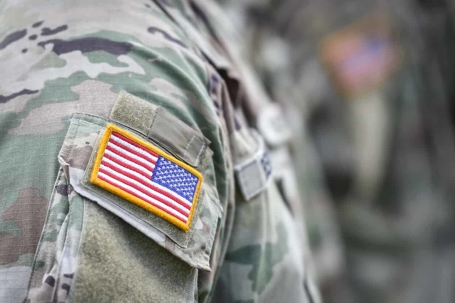Facing a charge under the Uniform Code of Military Justice (UCMJ) can be stressful and confusing, whether it involves a minor infraction or a more serious offense. Many service members have questions about how their rank or prior service might affect the penalties they could face—and what options are available to mount an effective defense.
This article will discuss how factors like rank, service history, and personal background can influence UCMJ proceedings and your defense strategy. Keep reading to understand how your military record could impact potential disciplinary actions and what steps you can take to protect your rights.
If you need immediate guidance, contact The Griffin Law Firm today via our online contact form or call (888) 707-4282.
Understanding the Role of Rank in UCMJ Cases
Military rank represents more than a title—it shows a service member’s experience, responsibility, and leadership within the armed forces. In UCMJ proceedings, commanders and judges consider rank when determining the severity of a sentence and how they handle a case. They often scrutinize higher-ranking service members more closely because they must set an example for junior personnel. At the same time, a service member’s experience and prior record can sometimes help reduce penalties.
For example:
Non-commissioned officers (NCOs), like sergeants, have leadership responsibilities. A violation may be judged more harshly because it undermines unit discipline.
Commissioned Officers, such as lieutenants or captains, have even higher expectations for adherence to military law and ethical standards. Violations can result in significant professional and career consequences.
Prior Service and Its Impact on Defense Options
Your prior service—such as the time served, awards, deployments, and prior conduct—can influence how a UCMJ violation is handled. Judges and commanders often weigh your past service to determine whether an offense reflects a single lapse in judgment or a pattern of misconduct.
Key factors include:
Length of Service: Long-serving members with a good record may receive more consideration regarding mitigation.
Awards and Commendations: Recognition for exemplary service can be a positive factor in your defense.
Prior Disciplinary History: Previous NJPs, courts-martial, or other infractions can increase the severity of consequences for new charges.
These elements are considered alongside the circumstances of your current case to ensure the military system maintains discipline while remaining fair.
How Rank and Service Record Affect Types of Proceedings
The channels that handle UCMJ violations may differ depending on the offense and your service profile:
Non-Judicial Punishment (NJP): Often used for minor violations, NJP is a quicker process that avoids formal courts-martial but can still affect pay, rank, or duties.
Courts-martial: Serious offenses may result in a formal military trial, which can lead to confinement, fines, or discharge.
Rank may also determine who adjudicates your case. Officers of equal or superior rank usually try high-ranking personnel, while lower-ranking members may be subject to different procedures.
Additionally, service members may face civilian charges if their actions violate civilian law, especially when civilians are involved. Even in civilian courts, prior service and military rank can influence sentencing.
Common Misconceptions About Rank, Service, and Punishment
It’s important to clarify a few myths:
Higher Rank Means Leniency: Officers are often held to stricter standards due to leadership responsibilities.
Good Service Record Guarantees Minimal Penalty: While an exemplary record may reduce severity, it does not eliminate accountability.
NJP Is Always Minor: While NJPs can be minor offenses, they can still result in serious consequences such as reductions in pay, rank, or assignments.
Knowing the realities of how rank and service record affect proceedings can help you make informed decisions in building a defense.
Mitigating Factors and Knowing Your Rights
Aside from rank and prior service, several other factors can influence outcomes and help protect your rights. Every service member has rights under the UCMJ and civilian law, and understanding these protections can prevent unnecessary escalation and protect your career. For more information, see MTSU’s guide on military personnel rights.
Other mitigating factors may include:
Character References: Testimonials from commanding officers or peers can support your credibility and demonstrate good standing.
Personal Circumstances: Stress, mental health issues, or situational factors may be considered during sentencing.
Acknowledgment and Remorse: Demonstrating accountability for your actions can positively influence outcomes.
Combining knowledge of your rights with evidence of mitigating factors ensures that your defense is thorough and strategically strong.
Safeguard Your Career with Experienced Military Attorneys
If you face a UCMJ charge, your prior service and military rank are critical elements of your case. Our UCMJ defense lawyers at The Griffin Law Firm are former Judge Advocate General (JAG) attorneys who have handled hundreds of misconduct cases and all types of criminal matters, from drug violations to cybercrimes and high-profile cases.
Service members remain subject to civilian law and can be tried in civilian courts, most commonly for offenses involving civilians. However, minor violations are typically handled through non-judicial punishment (NJP) or in military trials, which are known as court martials.
Don’t navigate this alone. Contact The Griffin Law Firm at (888) 707-4282 to safeguard your rights, career, and future.

